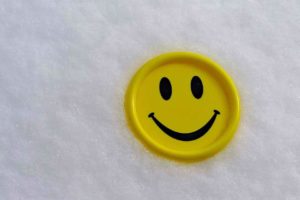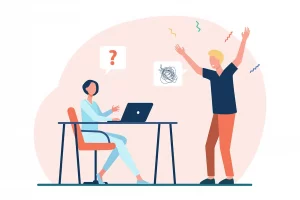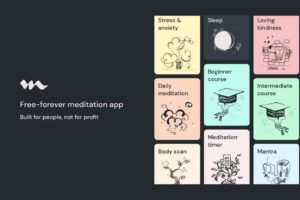Are you a manager? Do you want to be one? Managers need a good knowledge of human nature, after all, they have to lead a team. But how can you tell if your own assessments of others are correct?
What Is Judge Of Character?
Judge of character – this is the name given to the ability to be able to assess others quickly, to empathize with others and to recognize how the other person is doing and what they are up to. Experts say: If you can quickly assess what problems, worries, wishes, but also character traits the other person has, you can deal with any situation more easily – because you can sit in the other person’s chair, show understanding and react accordingly. Also, a judge of character can quickly recognize whether the appearance of his counterpart is “genuine” or whether he is just putting on a show.
A good judge of character therefore has an advantage in many situations:
- He can negotiate better because he knows the motives of his counterpart and can anticipate his behavior.
- He can avoid conflicts and find compromises because he can assess the sensitivities of others well.
- He is less likely to be deceived or disappointed because he can assess the character of his fellow human beings more unerringly than others.
These skills are especially important for people who have to lead others. “I also got to know bosses who were successful without any knowledge of human nature, mostly narcissistic power people who were not interested in others” says social pedagogue and body language expert Tatjana Strobel. “Long-term, better bonds with customers and employees, however, are achieved by those entrepreneurs who are empathetic. Soft power is becoming increasingly important – also because good employees are harder to find and keep. That’s where it helps enormously if a boss can appreciate and value his staff.”
Test: Do I Have A Good Understanding Of Human Nature?
But we often overestimate our own knowledge of human nature. We believe that we can quickly assess others – and yet we are wrong. Often, we don’t even notice it. The reason is a perception error: the so-called confirmation bias.
The phenomenon has been well researched in psychology: We prefer to perceive only what is pleasant for us, what is consistent with our beliefs and our worldview. We consciously or subconsciously block out what doesn’t fit the picture – regardless of whether it makes sense or not. The consequence: We find someone trustworthy at first glance, for example, and subsequently block out everything that contradicts this assessment. As a result, we do not notice that our assessment is incorrect. And we also don’t notice that our knowledge of human nature is not as good as we assume.
So how do we find out how good our judge of character really is? A good test is to observe people closely at family get-togethers or the regulars’ table with friends, draw conclusions about how they are doing, what’s on their minds – and then ask them to check to what extent their own assessment is correct. A positive side effect is that such conversations help to deepen relationships with one another – simply because we have them so rarely.
Is Being Good Judge Of Character Gift?
The basis for people skills are the mirror neurons in the brain: These can and must be trained. This usually happens through contact with our parents: As a child, we observe what they do, how they behave in certain situations – and what their face and body language express. In this way, we learn to know people like a language: gestures, facial expressions and voice pitch form a kind of vocabulary that, when combined, form a sentence with a specific message.
The exciting thing is that people whose parents took a lot of time for them and played a lot with them have the greatest knowledge of human nature. And those whose parents did exactly the opposite and were very arbitrary in their behavior: In families like this, it is practically vital for children to use nuances to recognize what mood is currently prevailing” says Tatjana Strobel.
How To Be Better Judge Of Character?
1. Make Observing Your Fellow Human Beings A Daily Routine.
There are countless occasions: while jogging in the park, you can look at the play between parents and children; while watching a talk show, you can analyze how interlocutors react when they are interrupted; at the train station, it makes sense to look at who looks like they are waiting – and how they react when the expected person shows up.
2. Analyze The Behavior Of Others
“Always ask yourself: How do people react with their body language to the situation in which they are currently stuck? What do their faces look like? And how do you feel right now?” Advises the expert Strobel. Those who practice every day soon assess their counterparts faster and better in everyday life – and can act more confidently in every situation.
3. Know Yourself
To be able to assess others, you also need to know about your own personality. Be aware: What are my values? What are my weaknesses and strengths? What do I dream of? What are my goals? How far would I go to achieve these goals? How do I affect others? If you don’t know and assess yourself correctly, you will also be wrong with others.
4. Know Typical Perception Errors
It is not only the aforementioned confirmation bias that causes us to misjudge others. There are several other psychological traps that am can fall into. For example, the halo effect has been well researched. It means that we conclude from a known characteristic of a person to an unknown one – although there is no connection at all. For example, we meet another person and find him likeable. We conclude that he is also loyal and honest – although there is not a single indication for the latter. Or: A colleague always has a neat desk. We conclude: He certainly works in a structured manner and is very reliable.
Is It Possible To Judge Person’s Character 100% Accurate?
Unfortunately, no. If we are on friendly terms with someone or even love them, we often push our gut feeling away – even if it screams out loud that something is wrong with a person. Especially in family businesses or start-ups, this can quickly become a problem. “We then deceive ourselves to prevent the positive image of the other person from being scratched by the flaws we have discovered,” says Strobel.
Here it helps to try to consciously separate the private and the professional: In this way, the emotional level disappears from an observation – and your own knowledge of human nature has a chance again.













